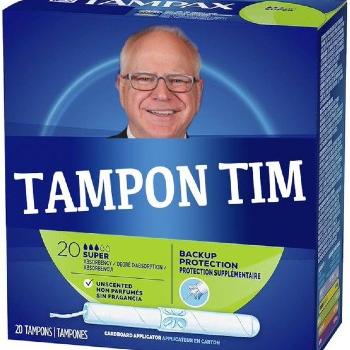Here are two paragraphs from today's paper, from an article on an appointment to Delaware's Chancery Court — a unique legal body tailored to resolving corporate disputes:
The court is considered one of the key reasons companies incorporate in the state. Delaware's incorporation franchise is a major moneymaker for the state, generating as much as one-third of the state's annual revenues. About 63 percent of Fortune 500 companies and more than half of the companies on the New York Stock Exchange have filed their certificates of incorporation in the state.
When determining where to incorporate, companies base their decision, in part, on the quality of the judges and judicial process, legal experts said. For decades, Chancery Court judges have been highly respected for their legal sophistication and knowledge of complex corporate and commercial matters.
That phrase "is considered" allows room for this passage to qualify as technically true, but the idea that the Chancery Court is what established Delaware as a corporate promised land gets history a bit mixed up. This is part of a popular myth in the state which I suppose is more pleasant than the actual truth of the matter.
The truth is that Delaware carved out this particular niche by spending the early 20th century convincing businesses that this privilege of incorporation didn't have to come with any corresponding responsibilities. For a modest annual fee, any business could incorporate in the First State, no strings attached. And so they did.
This fundamentally changed the meaning of incorporation, providing an escape hatch from many of the reforms of the early 1900s. It also altered the character and meaning of corporations themselves, the very nature of this entity — "the corporation" — changed.
This summary, from "The History of Delaware's Business Courts," by Donald F. Parsons Jr. and Joseph R. Slights III in Business Law Today, offers a good rundown of how this played out, though their summary is filled with overly genteel euphemisms:
In 1897, Delaware adopted a new constitution, permitting incorporation under general law instead of by special legislative mandate. Under this provision, Delaware enacted a general corporation law in 1899 calling for perpetual corporate existence and general powers. Before then, most of the country's large corporations incorporated in New Jersey. In fact, Delaware modeled its 1899 General Corporation Law largely after the relatively liberal statute New Jersey had at that time.
After the Delaware legislature's adoption of the General Corporation Law, the Court of Chancery began to render decisions dealing with corporation law issues. Because the Court of Chancery does not have jury trials, explained Lewis S. Black, a Wilmington attorney and author of numerous books and articles on corporation and securities law, the judges were called upon to write opinions explaining their reasoning and a body of law began to develop.
New Jersey remained the leading state for incorporation until 1913, when under the leadership of New Jersey Governor Woodrow Wilson, it passed antitrust and other laws inhospitable to corporations. These new laws outlawed attempts to create monopolies or suppress competition and forbade the chartering of any new holding companies. The number of corporations incorporated in New Jersey declined precipitously. Delaware, with its newly adopted General Corporation Law, stood ready to serve as the state of incorporation for the many companies fleeing New Jersey. The Court of Chancery provided an able forum in which to adjudicate and resolve internal corporate controversies.
If reformist Gov. Wilson made things "inhospitable" by enforcing antitrust law and consumer protections and ending the reign of bribes and kickbacks, Delaware was willing to provide a much more hospitable climate just across the river. The side effect of massive deregulation is always massive litigation, and so the Chancery Court evolved into the creature it is today — a friendly, comfortable forum for the resolution of corporate disputes.
This may all sound like 100-year-old history, but the sick part is that Delaware pulled the same trick a second time in the 1980s, lowering and abolishing its banking standards — particularly usury laws and other consumer protections — in order to lure the banking industry to the state. It worked again. And since banks are only bound by the standards of the state in which they are chartered, this had the effect of gutting usury laws and consumer protections in the other 49 states as well.
Jonathan Chait offered a blistering account of all of this in The New Republic, in a 2002 article titled "Rogue State: The Case Against Delaware." Here's a taste of that:
Why do so many businesses incorporate in the First State? Delaware
propaganda suggests it is primarily a function of the state's efficient
bureaucracy and legal system, which includes a chancery court (a
chamber specializing in business disputes). This is partly true, but it
ignores the overriding factor: Incorporating in Delaware allows
companies to operate under its laws and courts, which are the most
promanagement in the nation. Corporations based there are held to the
laxest possible standards of disclosure, shareholder rights and
fiduciary responsibility. Indeed, as the state has admitted in the
past, its laws are specifically crafted to appeal to the interests of
corporate executives. …
What Chait calls "propaganda" there is something more like a creation myth, a legend ritualistically repeated by officials and newspapers and businesses alike every time the Chancery Court is in the news for one reason or another. All that other stuff — what Louis D. Brandeis called "the race to the bottom" — that may be historical fact, but that history is nowhere as compelling as the legend.
And like the man said, When the legend becomes fact, print the legend.












